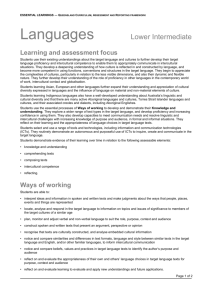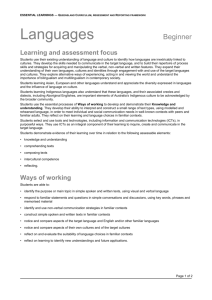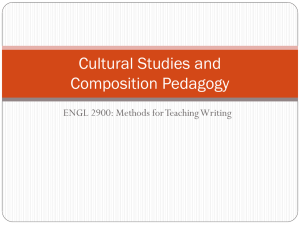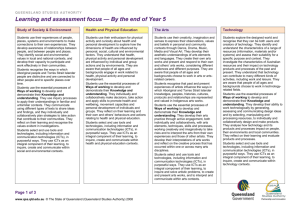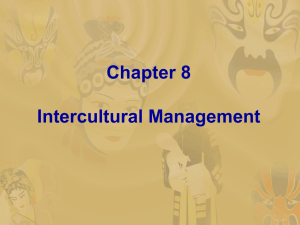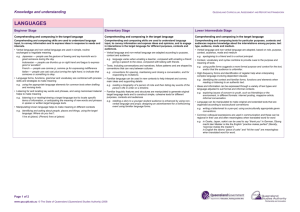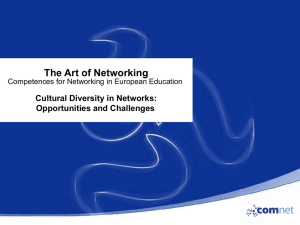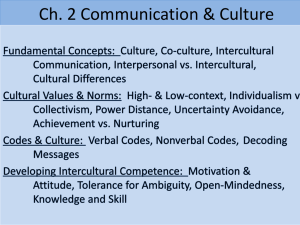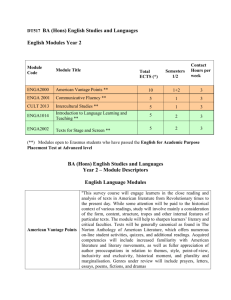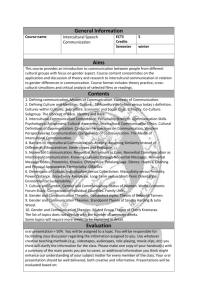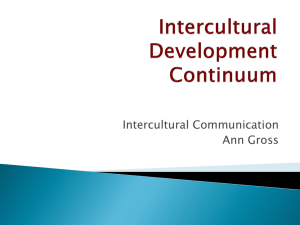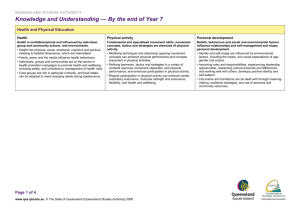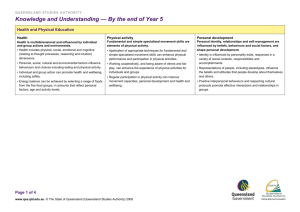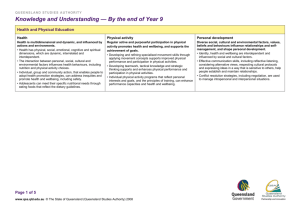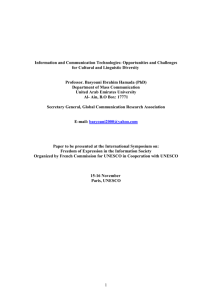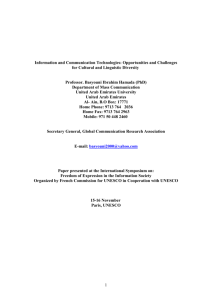Learning and assessment focus - LANGUAGES
advertisement
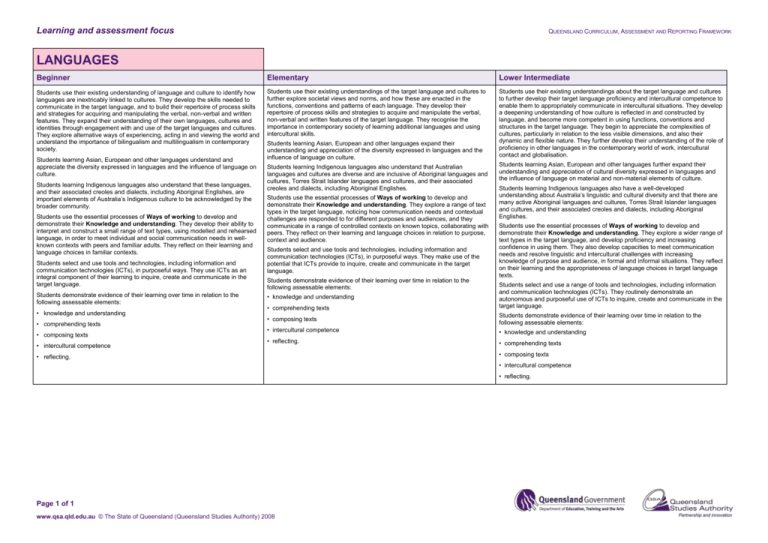
Learning and assessment focus QUEENSLAND CURRICULUM, ASSESSMENT AND REPORTING FRAMEWORK LANGUAGES Beginner Elementary Lower Intermediate Students use their existing understanding of language and culture to identify how languages are inextricably linked to cultures. They develop the skills needed to communicate in the target language, and to build their repertoire of process skills and strategies for acquiring and manipulating the verbal, non-verbal and written features. They expand their understanding of their own languages, cultures and identities through engagement with and use of the target languages and cultures. They explore alternative ways of experiencing, acting in and viewing the world and understand the importance of bilingualism and multilingualism in contemporary society. Students use their existing understandings of the target language and cultures to further explore societal views and norms, and how these are enacted in the functions, conventions and patterns of each language. They develop their repertoire of process skills and strategies to acquire and manipulate the verbal, non-verbal and written features of the target language. They recognise the importance in contemporary society of learning additional languages and using intercultural skills. Students use their existing understandings about the target language and cultures to further develop their target language proficiency and intercultural competence to enable them to appropriately communicate in intercultural situations. They develop a deepening understanding of how culture is reflected in and constructed by language, and become more competent in using functions, conventions and structures in the target language. They begin to appreciate the complexities of cultures, particularly in relation to the less visible dimensions, and also their dynamic and flexible nature. They further develop their understanding of the role of proficiency in other languages in the contemporary world of work, intercultural contact and globalisation. Students learning Asian, European and other languages understand and appreciate the diversity expressed in languages and the influence of language on culture. Students learning Indigenous languages also understand that these languages, and their associated creoles and dialects, including Aboriginal Englishes, are important elements of Australia’s Indigenous culture to be acknowledged by the broader community. Students use the essential processes of Ways of working to develop and demonstrate their Knowledge and understanding. They develop their ability to interpret and construct a small range of text types, using modelled and rehearsed language, in order to meet individual and social communication needs in wellknown contexts with peers and familiar adults. They reflect on their learning and language choices in familiar contexts. Students select and use tools and technologies, including information and communication technologies (ICTs), in purposeful ways. They use ICTs as an integral component of their learning to inquire, create and communicate in the target language. Students demonstrate evidence of their learning over time in relation to the following assessable elements: • knowledge and understanding • comprehending texts • composing texts • intercultural competence Students learning Asian, European and other languages expand their understanding and appreciation of the diversity expressed in languages and the influence of language on culture. Students learning Indigenous languages also understand that Australian languages and cultures are diverse and are inclusive of Aboriginal languages and cultures, Torres Strait Islander languages and cultures, and their associated creoles and dialects, including Aboriginal Englishes. Students use the essential processes of Ways of working to develop and demonstrate their Knowledge and understanding. They explore a range of text types in the target language, noticing how communication needs and contextual challenges are responded to for different purposes and audiences, and they communicate in a range of controlled contexts on known topics, collaborating with peers. They reflect on their learning and language choices in relation to purpose, context and audience. Students select and use tools and technologies, including information and communication technologies (ICTs), in purposeful ways. They make use of the potential that ICTs provide to inquire, create and communicate in the target language. Students demonstrate evidence of their learning over time in relation to the following assessable elements: • knowledge and understanding • comprehending texts Students learning Asian, European and other languages further expand their understanding and appreciation of cultural diversity expressed in languages and the influence of language on material and non-material elements of culture. Students learning Indigenous languages also have a well-developed understanding about Australia’s linguistic and cultural diversity and that there are many active Aboriginal languages and cultures, Torres Strait Islander languages and cultures, and their associated creoles and dialects, including Aboriginal Englishes. Students use the essential processes of Ways of working to develop and demonstrate their Knowledge and understanding. They explore a wider range of text types in the target language, and develop proficiency and increasing confidence in using them. They also develop capacities to meet communication needs and resolve linguistic and intercultural challenges with increasing knowledge of purpose and audience, in formal and informal situations. They reflect on their learning and the appropriateness of language choices in target language texts. Students select and use a range of tools and technologies, including information and communication technologies (ICTs). They routinely demonstrate an autonomous and purposeful use of ICTs to inquire, create and communicate in the target language. • composing texts Students demonstrate evidence of their learning over time in relation to the following assessable elements: • intercultural competence • knowledge and understanding • reflecting. • comprehending texts • reflecting. • composing texts • intercultural competence • reflecting. Page 1 of 1 www.qsa.qld.edu.au © The State of Queensland (Queensland Studies Authority) 2008
